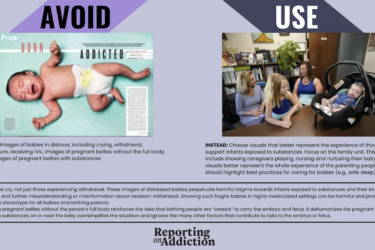
As authorities search for ways to curb the nation’s opioid epidemic, an increasing number of localities are turning to a new venue: the courts.
States, counties, cities and even Native American tribes are taking legal aim at companies they see as helping to fuel the drug crisis. In recent months, lawsuits have been filed against drugmakers, pharmacies and drug distributors even as some legal experts have said such challenges could face hurdles.
In late May, Ohio sued Purdue Pharma, Johnson & Johnson’s Janssen Pharmaceuticals, Endo International, Teva Pharmaceutical Industries and Allergan, according to Reuters’ Nate Raymond. The companies have denied the allegations, the report said.
Other similar lawsuits have been filed in Tennessee, Mississippi, New York and California. Chicago and the Cherokee Nation have also filed complaints, according to various media reports.
Raymond wrote:
“Some of those lawyers think the number of lawsuits could eventually snowball, resulting in an outcome similar to the $206 billion settlement tobacco companies reached with 46 states in 1998.
But some defense lawyers note that opioids, unlike cigarettes at the time, are regulated by the U.S. Food and Drug Administration.”
The Cherokee Nation, which filed suit in tribal court against pharmacies CVS Health, Walgreens and Wal-Mart as well as drug distributors Cardinal Health and McKesson Corporation, alleged that the companies should have noticed troubling patterns with opioid prescriptions and orders and reported them to federal authorities, Stat reports.
Its attorney general, Todd Hembree, cited the toll of addiction in the Cherokee Nation in an interview with WBUR’s Here & Now program.
“The goal of our lawsuit, from the inception of it, is to attempt to change the behavior of these corporations. And, as an attorney general, I can say that there’s two main ways that you can change a person’s behavior. No. 1 is put them in jail, which we can’t do in this instance. But, the second is to hit their bottom line hard enough that they rethink their actions. They have flooded their product — their dangerous product — to our communities here at the Cherokee Nation, so they shouldn’t be surprised that they find themselves in our court,” Hembree told WBUR’s Robin Young. (Listen to the full interview here.)
The companies all issued statements, which WBUR posted online. In part, they said:
- Cardinal Health: “We believe the lawsuits filed against us are misguided, and will do nothing to stem the crisis.”
- McKesson said it “has strong programs and processes in place to stop the shipment of controlled substances to pharmacies with suspicious ordering patterns.”
- CVS said it “is committed to the highest standards of ethics and business practices, including complying with all federal and state laws governing the dispensing of controlled substance prescriptions, and is dedicated to reducing prescription drug abuse and diversion.
- Walgreens declined to comment.
When it comes to lawsuits against manufacturers, Reuters’ Raymond noted that FDA approval of the medications could play a role as “judges and juries could defer to the agency’s approval of the companies’ opioid products as safe and effective for treating chronic pain and of the drugs’ warning labels that disclosed addiction-related risks.”
Related
- Probing court records helps uncover West Virginia opioid profits
- Reporter focuses on chronic pain for series on opioid use
- Tips for tackling big projects in small newsrooms
- Resources for covering overdoses and addictions
- Behind Washington’s promises to tackle opioid abuse
- Issues, resources for covering opioid use among older adults
- Covering the silent – and growing – epidemic of senior substance abuse
- What reporters should know about chronic pain and aging
- Style guide changes address language about addiction, gender
- New study tracks hospital opioid prescribing for older adults
- Reporter’s work pushes regulators, legislators to act on opioids
- Eyre’s Pulitzer-winning work shows power of hard data, big numbers
- Dentists urged to find non-opioid alternatives to ease patient pain
- Cincinnati journalists spotlight how the heroin epidemic has put a generation at risk
- Dental profession weighs in on the opioid abuse epidemic
- State prescription drug monitoring programs a window into fight against opioid abuse
- Surgeon general responds to journalists on range of public health issues #AHCJ16
- Watch surgeon general’s speech at Health Journalism 2016 #AHCJ16
- Dental study backs up surgeon general’s concerns about excessive opioid use #AHCJ16
- Murthy to release first surgeon general report on substance abuse, addiction and health #AHCJ16







